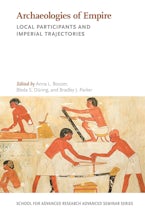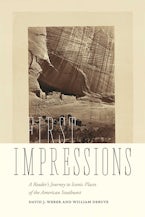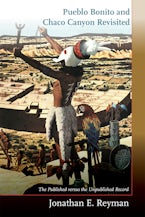- Home
- School for Advanced Research Advanced Seminar Series
- social science
- Archaeologies of Empire
Archaeologies of Empire
Local Participants and Imperial Trajectories
Edited by Anna L. Boozer, Bleda S. Düring and Bradley J. Parker
Throughout history, a large portion of the world's population has lived under imperial rule. Although scholars do not always agree on when and where the roots of imperialism lie, most would agree that imperial configurations have affected human history so profoundly that the legacy of ancient empires continues to structure the modern world in many ways. Empires are best described as heterogeneous and dynamic patchworks of imperial configurations in which imperial power was the outcome of the complex interaction between evolving colonial structures and various types of agents in highly contingent relationships. The goal of this volume is to harness the work of the "next generation" of empire scholars in order to foster new theoretical and methodological perspectives that are of relevance within and beyond archaeology and to foreground empires as a cross-cultural category. This book demonstrates how archaeological research can contribute to our conceptualization of empires across disciplinary boundaries.
Anna L. Boozer is an associate professor of Roman Mediterranean archaeology and history at Baruch College and the Graduate Center, City University of New York. Her research focuses on the dynamics of imperialism in everyday life in Roman Egypt and Meroitic Sudan.
Bleda S. Düring is an associate professor in Near Eastern archaeology at Leiden University. His research focuses on the archaeology of the early Assyrian Empire and the comparative archaeology of empire.
Bradley J. Parker (1961-2018) was an associate professor in the Department of History at the University of Utah and a key scholar on the archaeology of empire, investigating both the Assyrian and Andean Empires.
"This collection . . . seeks a more systematic and comparative study of empires in the pre-modern world. . . . Recommended."--M. L. Russell, Choice
"This book should stimulate lively debate among archaeologists and historians. It constitutes an important step forward in the investigation of empires and imperialism, both ancient and modern."--Peter S. Wells, author of Barbarians to Angels: The Dark Ages Reconsidered
List of Illustrations
List of Tables
Acknowledgments
Bradley J. Parker in Memoriam
Bleda S. Düring and Patrick Ryan Williams
Chapter One. Archaeologies of Empire: An Introduction
Bleda S. Düring, Anna L. Boozer, and Bradley J. Parker
Chapter Two. Colonial Entanglements: Imperial Dictate, Individual Action, and Intercultural Interaction in Nubia
Stuart Tyson Smith
Chapter Three. The Great Wall as Destination?: Archaeology of Migration and Settlers under the Han Empire
Alice Yao
Chapter Four. Inka Provinces of the Kallawaya and Yampara: Imperial Power, Regional Political Developments, and Elite Competition
Sonia Alconini
Chapter Five. Agents of Empire: Imperial Agendas and Provincial Realities in Roman Egypt
Anna L. Boozer
Chapter Six. The Assyrian Threshold: Explaining Imperial Consolidation in the Early Assyrian Empire
Bleda S. Düring
Chapter Seven. Historical Time and Imperial Formation in Aztec Mexico
Lisa Overholtzer
Chapter Eight. Wari and Tiwanaku: Early Imperial Repertoires in Andean South America
Patrick Ryan Williams, Donna Nash, and Sofia Chacaltana
Chapter Nine. Re-modeling Empire
Bradley J. Parker
Chapter Ten. Conclusions
Anna L. Boozer and Bleda S. Düring
References
Contributors
Index
School for Advanced Research Press










